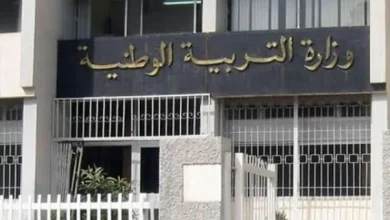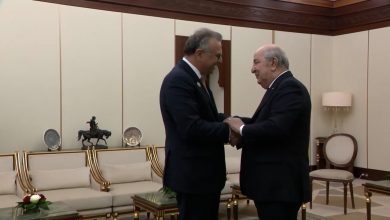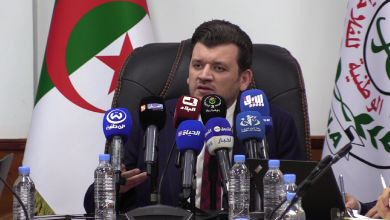DZWatch Exclusive: Reports emerging from El Fasher, Sudan, paint a horrifying picture of alleged atrocities committed by the Rapid Support Forces (RSF) following their recent capture of the city. Eyewitness accounts, satellite imagery analysis, and reports from aid organizations suggest a systematic campaign of violence, including the targeting of civilians and the execution of patients in hospitals. The accusations, which have been vehemently denied by RSF representatives, are sparking international condemnation and calls for immediate investigation.
According to a report published by the Washington Post, corroborated by local sources, the RSF is accused of executing patients receiving treatment at the Saudi Hospital within El Fasher University. The allegations stem from eyewitness testimonies and satellite imagery analysis that purportedly show military vehicles near locations with visible bloodstains and bodies. While DZWatch cannot independently verify these images, their emergence has fueled widespread fear and outrage.
“We are receiving consistent reports of hundreds, if not thousands, of civilians being targeted and killed in El Fasher based on their ethnicity,” a humanitarian worker, speaking on condition of anonymity for security reasons, told the Washington Post. “There are accounts of men and boys being separated from their families and subjected to torture or execution.” These accounts align with reports from local resistance committees in El Fasher, who allege that the RSF is systematically eliminating wounded individuals within the Saudi Hospital.
The Arab League has condemned the “heinous crimes” allegedly committed against civilians in El Fasher, calling for the perpetrators of these “violations” to be brought to justice. In a statement released Tuesday evening, the Arab League denounced “in the strongest terms the crimes against innocent and defenseless civilians, including the elderly, women, and children.” They demanded a “complete cessation of hostilities in the city, which has been under siege by the Rapid Support Forces for an extended period.” The organization reiterated its call for the protection of civilians, the provision of safe passage for those wishing to leave, unhindered access for humanitarian aid to El Fasher and surrounding areas, and the prosecution of all those responsible for any violations of international law.
The United Nations has also weighed in, urging the RSF to allow for a “safe passage” corridor to enable civilians to evacuate El Fasher. The Joint Force of Armed Movements, a coalition supporting the Sudanese Armed Forces (SAF) in Darfur, accused the RSF of killing approximately 2,000 civilians in El Fasher between October 26th and 27th alone. These claims, while difficult to independently verify given the ongoing conflict and restricted access to the region, contribute to a deeply concerning narrative of widespread violence and impunity.
The current crisis in El Fasher is unfolding against the backdrop of a larger conflict between the Sudanese Armed Forces (SAF) and the Rapid Support Forces (RSF) that erupted on April 15, 2023. Despite numerous regional and international mediation efforts, the conflict has persisted, resulting in a devastating humanitarian crisis. According to UN and local reports, the war has claimed the lives of an estimated 20,000 people and displaced over 15 million, both internally and as refugees in neighboring countries.
El Fasher, the capital of North Darfur, holds significant strategic importance. It is the last major city in Darfur not under RSF control and serves as a vital humanitarian hub for the region. The city’s capture by the RSF has raised fears of further instability and displacement, as well as potential ethnic cleansing, given the region’s history of intercommunal violence.
For more information about Algeria, check our dedicated section.
The RSF’s advance on El Fasher has been met with fierce resistance from the SAF and allied armed groups. The fighting has been concentrated in and around the city, causing widespread damage to infrastructure and displacement of civilians. The disruption of essential services, including healthcare, water, and electricity, has exacerbated the already dire humanitarian situation.
Adding to the complexity of the situation is the involvement of various armed groups in the conflict, often along ethnic lines. The fragmentation of the security landscape has made it difficult to protect civilians and deliver humanitarian aid. The risk of further escalation and regional destabilization remains high.
The international community is facing increasing pressure to take more decisive action to address the crisis in Sudan. Calls are growing for the implementation of targeted sanctions against individuals and entities responsible for human rights abuses and violations of international humanitarian law. There is also a need for increased humanitarian assistance to meet the urgent needs of the affected population.
DZWatch will continue to monitor the situation in El Fasher and provide updates as they become available. We are committed to providing accurate and unbiased reporting on the conflict in Sudan and its impact on the lives of ordinary people. The allegations of atrocities committed by the RSF in El Fasher must be thoroughly investigated, and those responsible must be held accountable for their actions. The protection of civilians must be a top priority, and all parties to the conflict must respect international humanitarian law.
The situation in El Fasher underscores the urgent need for a comprehensive and sustainable solution to the conflict in Sudan. This requires a renewed commitment to dialogue and negotiation, as well as a concerted effort to address the root causes of the conflict, including political marginalization, economic inequality, and ethnic tensions. The future of Sudan depends on the ability of its people to overcome their differences and build a more inclusive and just society. The world is watching.



